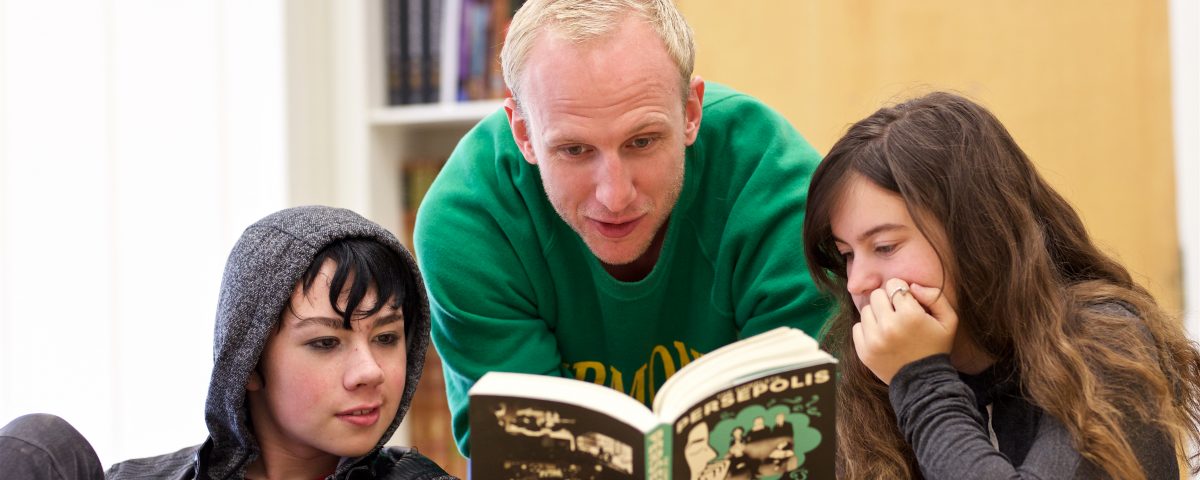Relational Learning: What Is It and Why Do Students Need It?
Relational Learning: What Is It and Why Do Students Need It?








Education shouldn’t be a transaction. It should be an invitation to personal growth.
When we hear the word “classroom,” many of us likely share a mental image: a teacher standing in front of seated students who silently absorb every word that comes from the instructor’s mouth. While there’s nothing wrong with a well-behaved and attentive class, the idea that learning is a process in which students participate as passive listeners can be problematic. There are healthier, more engaging ways to facilitate the learning process.
An approach known as relational learning, for example, aims to turn this image on its head. Through supportive relationships and an emphasis on shared learning experiences,
students become active participants in the creation and discovery of their own unique selves.
What does relational learning look like?
At its core, relational learning relies on strong relationships between teachers and their students — known as a “working alliance.” Rather than setting up a dynamic based on power — as can be the case in rigid classroom environments — relational learning reimagines the instructor’s role as a trusted guide. While instructors in more traditional settings can certainly act as guides and can absolutely form deep connections with students, truly relational learning makes the working alliance central to the broader educational experience.
As one study explains, teachers in a relational learning environment act simultaneously as mentors assisting in a student’s personal growth and as orienteers maintaining the trajectory of a particular course of study. This requires teachers to monitor the quality of their relationships with students, and make adjustments that affirm students’ needs, interests, and position within the classroom. This might mean bonding with a student over their passion for a particular scientific subfield or encouraging them to design a project around a book you both love. By meeting students where they are, teachers can provide them social, academic, and personal support — all at the same time.
Why do students benefit from relational learning?
As today’s students face a rigorous college application process and prepare to enter a competitive job market, stress levels among teenagers are understandably on the rise. While there are numerous ways to help teens manage the pressures of modern life, relational learning does so through the formation of support networks within the classroom. Strong relationships between students, their teachers, and their classmates can provide young people with a framework for what successful personal interactions look like, as well as an emotional and social foundation that can foster academic excellence.
The logic behind relational learning has been corroborated in a wealth of psychological literature. For example, one study conducted in six countries with the backing of the International Boys’ Schools Coalition found that the resistance young men brought into the classroom was effectively mitigated by relational gestures from teachers. A number of strategies such as bonding with students over shared interests, establishing mastery in a field, meeting opposition with civility, allowing a level of vulnerability, and setting challenging academic benchmarks made teachers more likely to become role models, mentors, and trusted guides for boys.
Similarly, research has demonstrated how relational learning can benefit adolescent girls. Studies show that young women consistently experience higher levels of social stress than young men, despite the fact that they statistically outperform boys in the classroom. By forming positive mentoring relationships with teachers characterized by authenticity, engagement, and empowerment, girls display higher self-esteem and more prosocial behavior.
How does relational learning fit in at Oliverian?
At Oliverian, we believe that a meaningful bond between teachers and students is essential to both academic success and personal growth. That’s why we keep our average class size at just five students.
Given an abundance of facetime, students are more likely to form — and benefit from — positive bonds with their teachers. In turn, teachers are empowered to tailor their lessons to address individual student needs, design coursework that boosts classroom engagement, and observe how Olis behave socially.
At Oli, these mentoring relationships aren’t just academic in nature — they’re the beginning of friendships that we hope will last a lifetime.
